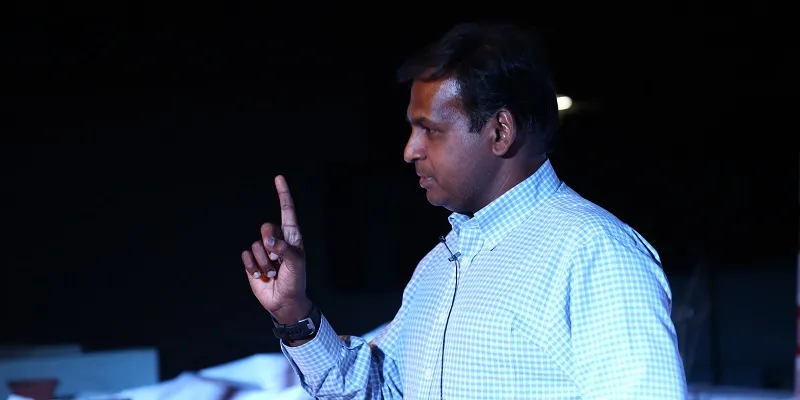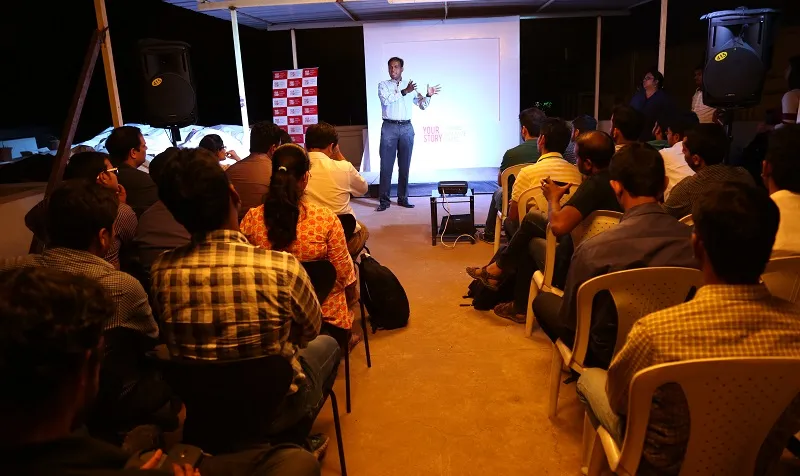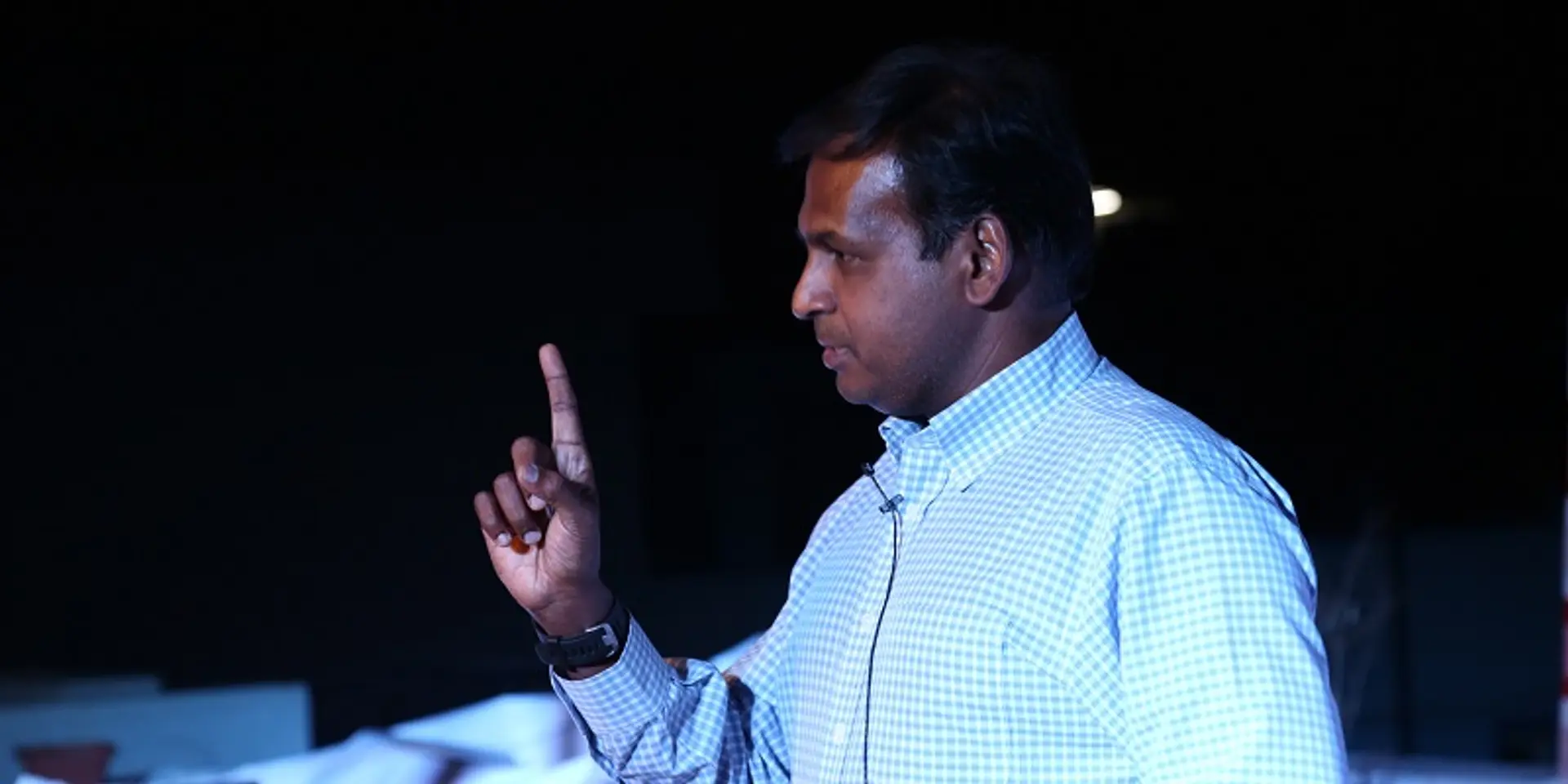What made them invest in Fitbit? Hear it from the investors themselves
Last August, the verdict was out.

An IDC research report had placed Apple in second position in the wearables market – within striking distance from the market leader in the space. Fitbit, crowned the leader, continued to hold its own ahead of Apple, and Xiaomi – shipping out 4.4 million units – held almost 24.3 percent of the market share. The number was said to be up by a whopping 159 percent from the same quarter in 2014. Last June, Fitbit registered its initial public offering (IPO), giving the company roughly $732 million in capital.
But if you look back to 2013, Fitbit was pitted against heavy competition and desperately looking for funding to expand operations globally. By August 2013, it managed to raise Series D of $43 million, with one of the investors to take this decision was Kartheepan Madasamy, Managing Director, Qualcomm Ventures India.

The investment paradigm
But Kartheepan, or Karthee as he is known, didn’t immediately bet on the company. A lot of heavy research went into making that decision.
As a venture, the investment arm of Qualcomm looked at Fitbit in 2008 when they were a Series-A startup. Karthee says,
“Fitbit wanted to do the other things around. When things were getting sucked increasingly into a smartphone, they wanted to take certain things out from the smartphone, standing boldly against the trend. We said it is going to be short-lived and I had voted against it.”
But there was a point of realisation for the investment fund, says Karthee, where they came to believe that Fitbit’s technology might not get sucked into a smartphone.
Fitbit was intending on taking the technology to another audience altogether, one that was not fitness-conscious, where individuals could compete and share their progress with their peers, friends and family thus striking a motivational chord with the consumers.
“We felt that the progress and the value proposition was set clear by the firm; it was for everyone,” Karthee added.
Thus, fundamentally by bringing ‘everyone’ in the gamut, Fitbit was creating a new category in the market. This was a huge consumer trend.
Drawing parallels to a similar consumer trend, he cited the example of GoPro, the point-to-shoot camera selectively made for adventure sports. That was a similar trend by itself, striking a lot of similar chords like Fitbit, where the company was taking things away from the smartphone, boldly standing against the trend yet again.
Karthee encapsulated the same example as learnings for young IoT startups in the country. According to him, when an entrepreneur is looking at a customer problem, it is all about going deeper to reach the tenth level of conviction, which matters. He said that often investors and peers mistake conviction for the stubbornness of a startup or entrepreneur, but it is in reality the conviction of standing strong against the tide and really solving the problem. And when an entrepreneur finally does have conviction, then he/she has to go deeper through “20 layers” of thinking about the solution. Narrating his learning from his investment career, he said,
“You get a great insight not by the first level of analysis, but rather from multiple levels of them. Conviction is not stubbornness but rather depth, going down to the tenth level to prove to yourself a point.”
For him, Fitbit was never a brand to be dismissed, because, as he pointed out, no one has been able to disrupt it so far.
Amidst the euphoria of Fitbit’s IPO, Qualcomm Ventures, on paper, returned a $100-million life fund from just one deal.
But Karthee’s heavy analysis from the IoT ecosystem doesn’t stop there. Sharing his insights, he outlined the following learnings for startups:
- Think global
Karthee urged entrepreneurs to ask themselves whether the problem they aim to solve is fundamental to India. If not, why are they here? Secondly, they need to dig deep and find out the root of the problem which they hope to solve and is causing them to think they can disrupt a certain market. Hence, they need to work backwards, keeping the problem as the starting point.
Karthee also encouraged entrepreneurs to think that any customer is a customer, any end user is an end user and a good product is a good product anywhere, irrespective of the part of the world they function from. Thus, for IoT startups, the world is their audience .
- What is your fundamental differentiation?
Karthee asked entrepreneurs to think about their differentiation from other players in the market. The more challenging the problem being solved, the higher is the barrier to enter the market. Ultimately, there should be clarity of thought and conviction about the problem they are going after.
- Where are you selling?
The question of where a product is being sold is crucial. The three markets being: The Indian market; other developing markets or what is called the ‘I to I’ markets; and global markets.
Karthee believes that the solution built should be robust enough to hold their own against existing solutions in those markets, while also having its own differentiation to offer.
While addressing the gathering of a room-full of IoT entrepreneurs at the ‘YourStory Startup Spotlight’ last Tuesday, Karthee provided some insight into his style of funding, when he answered a question on the right stage to seek funding. He said he invests in a startup when the venture is ready to take a million dollars after it takes its product to the fullest extreme of the available resources before asking for funding.
The best way to reach him? “Referrals,” he said, before mingling with the attendees.
(Disclaimer: Qualcomm Ventures is an investor in YourStory)







